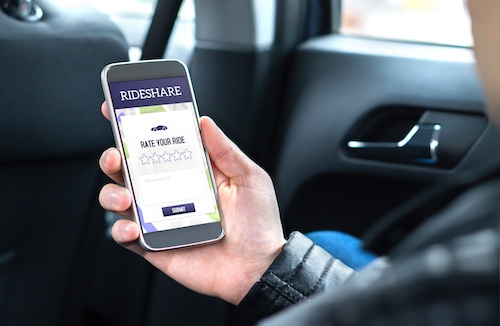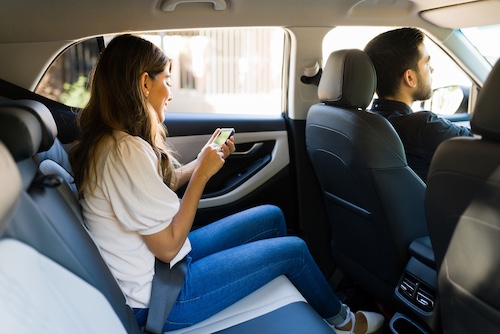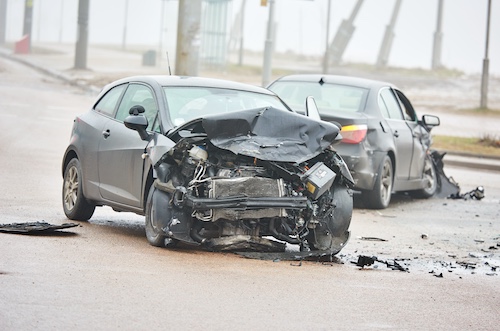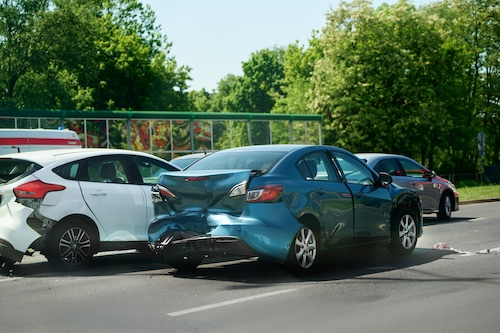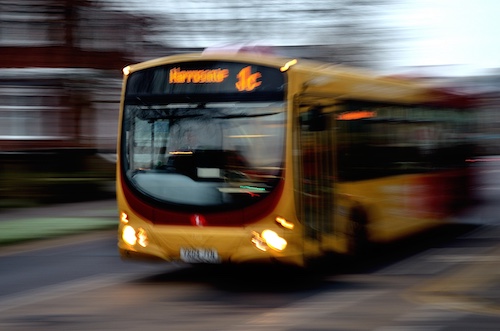Tennessee Rideshare Passenger Rights: What You Need to Know
At Knoxville Car Accident Lawyer, we focus on protecting the rights of injury victims across Tennessee. Our firm has years of experience handling car accidents, rideshare accidents, and personal injury claims. We know how insurance companies work, and we fight to make sure our clients receive fair compensation for medical expenses, lost income, and other damages. Our goal is simple: to provide clear guidance, strong representation, and the support you need after a serious accident.
Rideshare services like Uber and Lyft have become part of daily life in Tennessee, especially in cities such as Knoxville and Nashville. While these rides are convenient, accidents can and do happen. Passengers often face questions about liability, insurance coverage, and how to seek compensation for medical expenses or lost wages. Knowing your Tennessee rideshare passenger rights can make the difference between a denied claim and a fair recovery after a crash.
In this blog, you will learn about Tennessee rideshare passenger rights, how insurance coverage works after an Uber or Lyft accident, and why working with an experienced Knoxville rideshare accident attorney can help you secure fair compensation.
Legal Framework: Rideshare Services Under Tennessee Law
Rideshare services in Tennessee operate under rules that set clear limits for drivers, companies, and passengers. Understanding this legal framework is central to protecting Tennessee rideshare passenger rights after an accident.
Tennessee Regulation of Rideshare Companies
Tennessee regulates Uber, Lyft, and other rideshare companies under the Transportation Network Company Services Act, T.C.A. § 65-15-301 et seq. This law defines how rideshare services operate across the state. It requires rideshare companies to maintain records, ensure safety, and provide minimum insurance coverage for passengers and other drivers.
Independent Contractor Status of Drivers
Under Tennessee law, rideshare drivers are classified as independent contractors, not employees of Uber or Lyft. This status limits direct company liability and often shifts the focus to the driver’s personal auto insurance or the rideshare company’s policy, depending on the driver’s status at the time of the crash.
Insurance Coverage Requirements
Tennessee law requires different levels of insurance coverage depending on whether a driver is offline, waiting for a ride request, en route, or actively transporting a passenger. These rules determine whether a personal auto insurance policy or a rideshare company’s third party liability insurance applies. This distinction plays a key role in how rideshare accident claims are handled and how passengers may pursue compensation.
Passenger Rights After a Rideshare Accident
Passengers in Tennessee rideshare accidents have specific legal rights that allow them to seek compensation and hold responsible parties accountable. These rights ensure access to medical help, financial recovery, and legal protection.
Right to Medical Attention and Recovery of Expenses
Every passenger has the right to receive medical attention after an Uber or Lyft accident. Injuries may lead to medical bills, lost wages, or property damage. Tennessee rideshare passenger rights include the ability to claim these costs through insurance coverage or a personal injury claim.
Right to File a Personal Injury Claim
If a rideshare driver or another driver caused the accident, passengers may file a personal injury claim under Tennessee law. This includes compensation for medical expenses, lost income, and pain related to the crash. The claim may be against the rideshare driver, other drivers, or multiple parties, depending on fault.
Importance of Evidence and Documentation
Passengers should collect evidence at the accident scene, including rideshare app trip details, contact details of all drivers, and insurance policy information. Strong documentation helps in proving liability and increases the chance of a successful rideshare accident claim.
One-Year Statute of Limitations
Tennessee law sets a strict deadline for personal injury claims. Under T.C.A. § 28-3-104, passengers have one year from the date of the accident to file a claim. Waiting longer may bar the right to pursue compensation, even if the injuries and medical expenses are severe.
Determining Liability in a Tennessee Rideshare Crash
Liability in a Tennessee rideshare accident depends on who caused the crash and the driver’s status in the rideshare app. Multiple parties may be responsible, and Tennessee law sets rules for assigning fault.
Driver’s Status in the Rideshare App
The driver’s status at the time of the crash determines which insurance policy applies. If the driver was offline, the driver’s personal auto insurance provides coverage. If the driver was waiting for a ride request or actively transporting passengers, the rideshare company’s third-party liability insurance may apply.
Possible Responsible Parties
Responsible parties in a rideshare accident may include the Uber or Lyft driver, other drivers, or both. In some cases, a distracted driving incident or reckless action by another vehicle can shift liability away from the rideshare driver. Passengers may seek compensation from any party whose negligence caused the accident.
Comparative Fault Rule in Tennessee
Tennessee follows a modified comparative fault rule under T.C.A. § 29-11-103. A passenger can recover damages if they are less than 50 percent at fault. If multiple drivers contributed to the crash, each may be assigned a percentage of liability. This rule affects how insurance companies pay claims and how much compensation a passenger can recover.
Insurance Coverage for Rideshare Accidents
Insurance coverage for rideshare accidents in Tennessee depends on the driver’s activity in the app at the time of the crash. The rules separate coverage into different periods that affect which insurance policy applies.
Period 0: Driver Offline
If a rideshare driver is not logged into the Uber or Lyft app, the driver is considered offline. In this stage, only the driver’s personal auto insurance provides coverage. The rideshare company has no responsibility when the driver is using the vehicle for personal reasons.
Period 1: Waiting for a Ride Request
When the driver is logged into the app but has not yet accepted a ride, limited liability coverage applies. Tennessee requires minimum coverage of $50,000 for bodily injury per person, $100,000 per accident, and $25,000 for property damage under T.C.A. § 55-12-139. This coverage helps protect passengers and other drivers if the rideshare vehicle causes a crash during this period.
Periods 2 and 3: En Route or Actively Transporting
Once the driver accepts a ride request or is actively transporting a passenger, Uber and Lyft must provide up to $1 million in third-party liability insurance. This policy applies to injuries, medical expenses, property damage, and other losses caused by the accident. This level of coverage offers the strongest protection for Tennessee rideshare passenger rights.
Uninsured and Underinsured Drivers
Tennessee rideshare insurance policies may also provide coverage if the at-fault driver does not carry insurance or carries less than the required limits. This protects passengers against uninsured drivers and helps ensure that medical bills and lost income can still be recovered.
Steps Passengers Should Take After a Rideshare Accident
Passengers in a rideshare accident should act quickly to protect their health and their legal rights. Each step helps build a stronger rideshare accident claim and supports the recovery of fair compensation.
Seek Medical Help Immediately
The first priority after an accident is medical attention. Even minor injuries can become serious if untreated. Medical records also serve as key evidence in a personal injury claim and help prove the connection between the accident and the injuries.
Contact Law Enforcement and Document the Scene
Passengers should call law enforcement to report the crash. A police report provides an official record of the accident scene. Passengers should also collect photos of the vehicles, property damage, and visible injuries to support a rideshare accident claim.
Gather Contact and Insurance Information
Passengers should collect contact details for the rideshare driver, other drivers, and witnesses. This includes driver’s license numbers, insurance policy information, and rideshare app trip details. Strong documentation helps identify responsible parties and confirm which insurance coverage applies.
Notify the Rideshare Company
Uber and Lyft require passengers to report accidents through the rideshare app. Reporting triggers the company’s insurance coverage and helps establish proof that the crash occurred during an active ride. Passengers should also notify their own insurance company if they carry personal auto coverage.
Consult an Uber/Lyft Accident Lawyer
An experienced Uber/Lyft accident attorney can guide passengers through Tennessee law, handle negotiations with insurance companies, and pursue compensation for medical bills, lost wages, and property damage. Many attorneys offer a free consultation to help passengers understand their options.
Speak to a Knoxville Uber/Lyft Accident Attorney Today!
If you were injured as a passenger in an Uber or Lyft accident, you do not have to face the insurance companies alone. Our team at Knoxville Car Accident Lawyer is ready to fight for your Tennessee rideshare passenger rights. We help you pursue compensation for medical bills, lost wages, and property damage while holding responsible parties accountable.
Contact us at 864-444-2062 for a free case consultation today!
